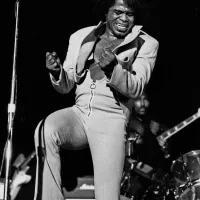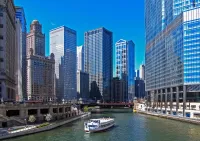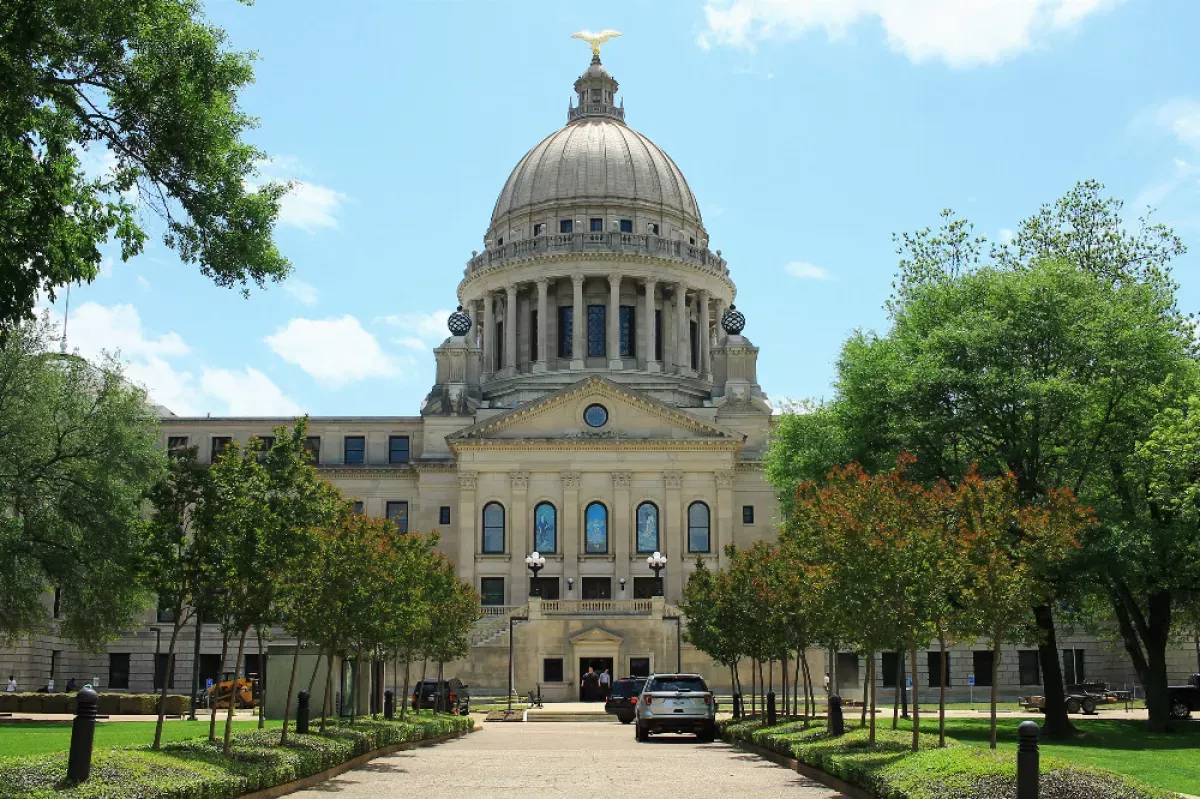Jackson, the capital and most populous city in Mississippi, experienced a significant population decline of 11.42% between 2010 and 2020, dropping to 153,701 residents. As the anchor of the Jackson metropolitan statistical area, it remains the state's largest metropolitan area and a major urban center in the Deep South. Home to over one-fifth of Mississippi's population, the city is situated on the Pearl River in the Jackson Prairie region. Notably, Jackson is the only city in the state with a population exceeding 100,000.
1900: Population Growth in Jackson
By 1900, the population of Jackson remained below 8,000. Despite experiencing rapid growth, Meridian emerged as Mississippi's largest city during this time due to its advantageous position in trade, manufacturing, and transportation infrastructure, including railroads and highways.
1903: End of Old Capitol's Legislative Use
In 1903, the Old Capitol building in Jackson ceased to serve as the home of the Mississippi state legislature. This historic building had been in legislative use since 1839.
1903: Completion of New Capitol
The New Capitol in Jackson was completed in 1903, replacing the older structure. The Old Capitol has since been operated as a historical museum.
1908: Constitutional Changes Disenfranchise African Americans
By 1908, Mississippi had ratified new constitutions or amendments that effectively disenfranchised most African Americans and many poor whites. These changes included provisions like poll taxes, residency requirements, and literacy tests, which survived a Supreme Court challenge in 1898.
1909: Birth of Eudora Welty
Eudora Welty, an acclaimed author, was born in Jackson in 1909. She lived most of her life in the Belhaven section of the city and became known for her novels and short stories.
1920: Initial Search for Oil and Natural Gas
Speculators began searching for oil and natural gas in Jackson in 1920. Although initial drilling attempts were unsuccessful, this marked the beginning of exploration in the area.
1923: Opening of King Edward Hotel
In 1923, the luxurious King Edward Hotel opened its doors in Jackson. Designed by New Orleans architect William T. Nolan, it became a center for prestigious events in the city.
1924: Discovery of Natural Gas by Ella Render
In 1924, Ella Render obtained a lease from the state's insane asylum and discovered natural gas on its grounds. This discovery spurred further investment in the Jackson area.
1925: Record High Temperature in Jackson
Jackson, Mississippi, experienced an exceptionally hot spell in 1925 when the temperature reached a record-breaking 107 degrees Fahrenheit (42 degrees Celsius) on September 6-7.
1929: Completion of Standard Life Building
In 1929, the 18-story Standard Life Building, designed by Claude Lindsley, was completed in Jackson. It was the largest reinforced concrete structure in the world at the time.
July 29, 1930: Record High Temperature in Jackson
Jackson, Mississippi, experienced scorching heat on July 29, 1930, when the temperature soared to a record-breaking 107 degrees Fahrenheit (42 degrees Celsius).
October 25, 1930: Request for Federal Help to Alleviate Flooding
On October 25, 1930, Jackson city leaders met with U.S. Army engineers to request federal assistance for flooding issues. City engineer J.J. Halbert proposed straightening and dredging the Pearl River.
1930: Economic Boost from Natural Gas Discovery
By 1930, the discovery of natural gas near Jackson had led to the establishment of 14 derricks in the city's skyline, providing a significant economic boost to the area.
1934: Peak of Oil and Natural Gas Industry Success
In 1934, Mississippi had 113 producing oil wells, marking the peak of the oil and natural gas industry's success in the state. This industry helped mitigate the effects of the Great Depression.
January 27, 1940: Record Low Temperature in Jackson
On January 27, 1940, Jackson experienced its lowest temperature on record, plummeting to -5 degrees Fahrenheit (-21 degrees Celsius).
May 1942: Training of Dutch Military Aircrews
From May 1942 until the end of World War II, all Dutch military aircrews trained at a base in Jackson and went on to serve in either the British or Australian Air Forces.
1943: Opening of Summers Hotel
In 1943, the Summers Hotel opened on Pearl Street in Jackson. It was one of two hotels in the city that served black clients and became a prime performance spot for black musicians.
1944: Jackson Becomes Mississippi's Largest City
By 1944, Jackson's population had surged to approximately 70,000, solidifying its position as the largest city in Mississippi.
1945: Publication of 'Black Boy'
In 1945, Richard Wright published his memoir 'Black Boy,' in which he detailed his experiences growing up in Jackson and the harsh life faced by African Americans under segregation.
1949: Margaret Walker Begins Teaching at Jackson State University
In 1949, poet Margaret Walker began her teaching career at Jackson State University, a historically black college. She taught there until 1979 and founded the Center for African-American Studies.
1955: Decline of Oil Wells
By 1955, the overwhelming majority of the 113 producing oil wells in Mississippi had been closed, marking a decline in the state's oil industry.
1960: Civil Rights Protests in Jackson
Beginning in 1960, Jackson, as the state capital, became the site for dramatic non-violent civil rights protests. This new phase of activism included mass demonstrations and a wide variety of participants.
1960: Segregation and the Civil Rights Movement Begins
In 1960, Jackson, Mississippi, was a segregated city with a population that was 64.3% white and 35.7% Black. Jim Crow laws were in effect, enforcing racial segregation in public facilities. The Civil Rights Movement began to take shape in Jackson when nine Tougaloo College students, a historically Black college, attempted to use the "white only" public library and were subsequently arrested.
May 24, 1961: Freedom Riders Arrive in Jackson
On May 24, 1961, over 300 Freedom Riders arrived in Jackson, Mississippi. These interracial groups rode interstate buses from Washington, D.C., to challenge segregation on public transportation. Their arrival in Jackson marked a pivotal moment in the Civil Rights Movement, as they faced arrest for "disturbing the peace." Despite intending to reach New Orleans, Jackson was the farthest any group made it due to the intense opposition and violence they encountered, including a bus burning and physical assaults. The events in Jackson brought national attention to the struggle for civil rights.
December 1961: Major Flood in Jackson
Jackson experienced a significant flood event in December 1961, causing extensive damage along the Pearl River, highlighting the city's vulnerability to flooding.
1961: Start of Boycotts and Protests
Following the Freedom Rides, students and activists initiated a series of merchant boycotts, sit-ins, and protest marches in Jackson from 1961 onwards, targeting businesses that discriminated against Black customers. These actions aimed to challenge discriminatory practices and promote racial equality in Jackson, Mississippi.
June 12, 1963: Assassination of Medgar Evers
On June 12, 1963, Medgar Evers, a prominent civil rights activist and the leader of the Mississippi chapter of the NAACP, was assassinated outside his home in Jackson by Byron De La Beckwith, a white supremacist. Evers' death sparked national outrage and highlighted the extreme violence faced by those fighting for civil rights in the South. His assassination led to mass protests and further galvanized the Civil Rights Movement.
June 1963: First Successful Cadaveric Lung Transplant
In a groundbreaking medical achievement, the world's first successful human lung transplant using a cadaveric lung was performed at the University of Mississippi Medical Center in Jackson in June 1963. Led by Dr. James Hardy, the surgery involved transplanting the lung into a patient with terminal lung cancer. Though the patient survived for 18 days before succumbing to kidney failure, the procedure marked a historic milestone in the field of organ transplantation.
1963: Continuing Boycotts and Protests
Continuing from 1961, the series of boycott, sit-ins, and protest marches by activists and students continued through 1963 in Jackson. The demonstrations aimed to challenge segregation and discrimination against Black customers in businesses in the city.
1963: Voter Registration Efforts Begin
In 1963, civil rights activists in Jackson and across Mississippi launched voter education and registration drives aimed at enfranchising Black citizens who had been systematically denied their voting rights since the late 19th century. A pilot project successfully registered 80,000 voters, demonstrating the desire of African Americans to participate in the political process.
1964: Passage of the Civil Rights Act
Although segregation and the disfranchisement of African Americans gradually ended after the Civil Rights Movement, a major turning point was the Congressional passage of the Civil Rights Act of 1964. This landmark legislation outlawed discrimination based on race, color, religion, sex, or national origin, aiming to end segregation in public places and ban employment discrimination.
1964: Formation of the Mississippi Freedom Democratic Party
In 1964, civil rights activists established the Mississippi Freedom Democratic Party (MFDP) as an alternative to the state's all-white Democratic Party, which had effectively disenfranchised Black voters. The MFDP sent an alternate delegation to the Democratic National Convention in Atlantic City, New Jersey, challenging the legitimacy of the segregated political system in Mississippi and demanding recognition for Black voters.
1965: Passage of the Voting Rights Act
Building on the momentum of the Civil Rights Act of 1964, the Voting Rights Act of 1965 was passed by Congress. This act aimed to overcome legal barriers at the state and local levels that prevented African Americans from exercising their right to vote under the 15th Amendment to the U.S. Constitution.
March 3, 1966: Candlestick Park Tornado
On March 3, 1966, a devastating F5 tornado, known as the Candlestick Park tornado, ripped through South Jackson. This catastrophic event caused widespread destruction to the Candlestick Park shopping center, surrounding businesses, and residential areas, resulting in the loss of 19 lives.
June 1966: James Meredith March Concludes in Jackson
The James Meredith March, organized by James Meredith, the first African American to enroll at the University of Mississippi, culminated in Jackson in June 1966. Initiated in Memphis, Tennessee, the march aimed to advocate for the full implementation of civil rights legislation and register Black voters in Mississippi. Despite facing violence along the way, including Meredith being wounded by a sniper, the march successfully registered thousands of new Black voters and concluded with a large rally in Jackson on June 26.
1966: Publication of 'Jubilee' by Margaret Walker
In 1966, Margaret Walker published her second novel, 'Jubilee,' which is considered a major work of African-American literature.
1966: Repeal of Mississippi's Prohibition Laws
In 1966, Mississippi repealed its prohibition laws, allowing Hinds County, including Jackson, to go 'wet.' This change led to the decline of the Gold Coast and disappearance of many businesses.
1966: Flood Control Measures Implemented
To address the recurring problem of flood damage from the Pearl River, the U.S. Army Corps of Engineers completed a major flood control project in Jackson in 1966. The project, costing $6.8 million, involved constructing levees and a new channel to prevent future floods as severe as the one experienced in December 1961.
September 1967: Bombing of Beth Israel Congregation Synagogue
In a hate-motivated attack reflecting the racial tensions of the time, the synagogue of the Beth Israel Congregation in Jackson was bombed in September 1967 by members of the Ku Klux Klan. The bombing, along with a subsequent attack on the rabbi's home in November, was a response to the congregation's support for the Civil Rights Movement, highlighting the dangers faced by those who challenged the status quo.
1968: Malaco Records Establishes in Jackson
In 1968, Jackson became the home of Malaco Records, a company that would become a major force in the recording industry, particularly in gospel, blues, and soul music. The establishment of Malaco cemented Jackson's reputation as a center for Southern music.
May 15, 1970: Jackson State Killings
In a tragic event that underscored the racial and social unrest gripping the nation, Jackson police opened fire on a group of protesting students at Jackson State College (now Jackson State University) on May 15, 1970. The protest, sparked by the Vietnam War and the recent Kent State shootings, turned deadly, leaving two students dead and twelve injured. The Jackson State killings amplified the national debate over civil rights, racial injustice, and the use of force by authorities.
January 1973: Paul Simon Records at Malaco Studios
In January 1973, renowned musician Paul Simon chose Malaco Recording Studios in Jackson to record two songs, "Learn How to Fall" and "Take Me to the Mardi Gras," for his album "There Goes Rhymin' Simon." Simon's decision to record in Jackson brought wider recognition to Malaco and its roster of talented Southern musicians, including the Muscle Shoals Rhythm Section and the Onward Brass Band.
1973: Pulitzer Prize for 'The Optimist's Daughter'
In 1973, Eudora Welty won the Pulitzer Prize for her novel 'The Optimist's Daughter.' She is widely celebrated for her literary contributions.
1979: End of Margaret Walker's Teaching Career
In 1979, poet Margaret Walker concluded her teaching career at Jackson State University, where she had been an influential educator and founded the Center for African-American Studies.
1980: Peak Population in Jackson
Jackson reached its peak population in 1980, according to the census, with over 200,000 residents. However, since then, the city has experienced a decline in population due to various factors, while the surrounding suburban areas have seen population growth.
1984: Publication of 'One Writer's Beginnings'
In 1984, Eudora Welty published her memoir 'One Writer's Beginnings,' which presented a picture of Jackson in the early 20th century and detailed her development as a writer.
1985: Electoral System Change
In 1985, Jackson voters chose to replace the mayor-commissioner system with a city council and mayor, allowing broader resident representation with council members elected from seven wards and the mayor elected citywide.
1986: Kerry Report Exposes Corruption
The 1986 Kerry Report, a U.S. Senate investigation into public corruption and foreign relations, exposed drug trafficking activities at Jackson's Hawkins Field airport. The report highlighted the influx of illegal drugs into the region, with smugglers exploiting the Gulf region's highways, seaports, and airports. The findings led to increased scrutiny of drug trafficking and corruption in Jackson.
1990: State-Approved Gaming on Riverboats
In 1990, Mississippi approved gaming on riverboats, leading to the development of numerous casinos in towns like Tunica Resorts, Greenville, and Vicksburg.
1993: Election of Representative Thompson
Democrat Bennie Gordon Thompson has represented the majority of Jackson in Mississippi's 2nd congressional district since 1993.
1994: Conviction of Byron De La Beckwith
In 1994, after two previous mistrials, Byron De La Beckwith was finally convicted by a Mississippi jury for the 1963 murder of civil rights leader Medgar Evers in Jackson. The conviction, secured by prosecutors Ed Peters and Bobby DeLaughter, marked a significant moment of accountability for a racially motivated crime that had remained unresolved for decades.
1994: Peak Violent Crime Rate in Jackson
While Jackson's homicide rate saw a concerning surge, it's worth noting that overall violent crime rates had not escalated as drastically as homicides in recent years. As of 2020, the violent crime rate remained below the peak levels witnessed in 1994.
1997: Harvey Johnson Jr. Elected as First Black Mayor
In a historic moment for Jackson, Harvey Johnson, Jr. was elected as the city's first African American mayor in 1997. Johnson's election marked a significant shift in the city's political landscape and symbolized progress in race relations.
August 30, 2000: Record High Temperature in Jackson
On August 30, 2000, Jackson, Mississippi, matched its all-time high temperature record when the mercury hit a sweltering 107 degrees Fahrenheit (42 degrees Celsius).
2000: Median Income and Poverty in Jackson (2000)
In 2000, census data showed that the median income for a household in Jackson was $30,414, while the median income for a family was $36,003. Approximately 19.6% of families and 23.5% of the population were living below the poverty line.
2000: Rising Crime and Food Deserts in Jackson
Since 2000, Jackson has grappled with high levels of criminal activity, particularly a concerning homicide rate, which has negatively impacted the city's economy and population. The increase in crime, including theft, has led to the closure or relocation of essential grocery stores and restaurants, contributing to the emergence of food deserts in many parts of the city.
2000: Leadership of Parents for Public Schools Jackson
Susan Womack served as president of Parents for Public Schools Jackson (PPSJ) from 2000 to 2012.
2001: Death of Eudora Welty
Eudora Welty, a renowned author, passed away in Jackson in 2001. She spent most of her life in the city's Belhaven section and left a lasting literary legacy.
2002: Last of the Mississippi Jukes Documentary
The Subway Lounge, part of the Summers Hotel on the Gold Coast, was featured in the 2002 documentary film "Last of the Mississippi Jukes."
2004: Convention Center Referendum Passes
During his second term as mayor in 2004, Harvey Johnson Jr. secured voter approval for a tax referendum to fund the construction of a convention center in Jackson. The referendum, which passed with 66% of the vote, aimed to boost the city's economy by attracting more business and tourism.
July 4, 2005: Frank Melton Becomes Mayor
Frank Melton was sworn in as the new mayor of Jackson on July 4, 2005, succeeding Harvey Johnson Jr.. Melton's tenure would be marked by controversy due to his unorthodox approach to law enforcement and his personal involvement in policing activities.
2005: Impact of Hurricane Katrina on Gambling Revenues
In 2005, Hurricane Katrina caused significant damage and losses to Mississippi's gambling industry. Before the hurricane, the state ranked second nationally in gambling revenues.
2006: Starsky Darnell Redd Conviction
In 2006, a federal court convicted young African American businessman Starsky Darnell Redd, along with his mother, associates, and former airport security chief Billy Tucker, on charges of money laundering. The case highlighted the issue of financial crime in Jackson.
2007: Malcolm McMillin Appointed Police Chief
In a historic move in 2007, Hinds County sheriff Malcolm McMillin was appointed as the police chief of Jackson, Mississippi. This made him both the county sheriff and the city police chief until 2009.
May 2009: Death of Mayor Frank Melton and Appointment of Acting Mayor
In May 2009, Mayor Frank Melton of Jackson, Mississippi, passed away. Following his death, City Councilman Leslie McLemore assumed the role of acting mayor.
July 2009: Harvey Johnson Elected Mayor
In July 2009, Harvey Johnson was elected as the mayor of Jackson, Mississippi. He took over the position from Leslie McLemore, who was serving as acting mayor.
2010: 2010 Census Data for Jackson
According to the 2010 census, only 622 of Jackson's residents lived in Madison County and only one resident lived within the city limits in Rankin County.
2010: Racial and Ethnic Makeup of Jackson in 2010
According to the 2010 census, the racial and ethnic composition of Jackson was predominantly Black or African American and non-Hispanic white.
2010: Population Statistics in 2010
In 2010, the population of Jackson, Mississippi, was recorded at 173,514. This figure was later used as a reference point to highlight the significant population decline by 2020.
June 26, 2011: James Craig Anderson Murder
On June 26, 2011, James Craig Anderson, a 49-year-old man, was tragically killed in Jackson in a hate crime. Anderson was beaten, robbed, and run over by a group of white teenagers. The incident sparked outrage and was investigated by the FBI as a civil rights violation.
2011: The Help Filming
The 2011 film "The Help," based on Kathryn Stockett's novel, was shot in Jackson, and the city offers a self-guided tour of locations featured in the book and movie.
2011: USS Jackson Naming
The United States Navy christened a ship USS Jackson (LCS-6) in honor of the city in 2011.
2011: Representative Thompson's Committee Roles
Thompson served as Chairman of the Committee on Homeland Security until 2011 and has held the position of ranking member since then.
2012: End of Womack's Tenure at PPSJ
Womack's time as president of PPSJ concluded in 2012.
March 18, 2013: Severe Hailstorm in Jackson
On March 18, 2013, a severe hailstorm struck the Jackson metro area, causing significant damage. The hail, ranging in size from golf balls to softballs, inflicted widespread damage to roofs, vehicles, and building siding, resulting in over 40,000 insurance claims for homeowner and automobile damage.
July 1, 2013: Chokwe Lumumba Becomes Mayor
Chokwe Lumumba was sworn in as the mayor of Jackson, Mississippi on July 1, 2013.
2013: Jackson Ranked Among Friendliest Cities
In 2013, Jackson, Mississippi, received recognition for its welcoming atmosphere when CN Traveler named it one of the top 10 friendliest cities in the United States. The city tied with Natchez for the seventh spot on the list, earning praise for its friendly residents, delicious food, and attractive green spaces.
February 25, 2014: Death of Chokwe Lumumba
On February 25, 2014, Chokwe Lumumba, the mayor of Jackson, Mississippi, died after eight months in office. Lumumba was a well-known but divisive figure due to his past affiliation with the Republic of New Afrika and his role as a co-founder of the National Coalition of Blacks for Reparations in America.
April 22, 2014: Tony Yarber Elected Mayor
Tony Yarber was elected mayor of Jackson, Mississippi, on April 22, 2014, defeating Chokwe Antar Lumumba, the son of the late mayor.
August 2014: Get on Up Filming
Scenes from the August 2014 film "Get on Up," a biographical movie about James Brown, were filmed in Jackson and nearby Natchez.
2014: Winter Weather Impact on Infrastructure
Jackson's infrastructure suffered damage due to harsh winter conditions in 2014-2015.
March 27, 2015: State of Emergency for Infrastructure
Mayor Tony Yarber declared a state of emergency on March 27, 2015, due to deteriorating transportation infrastructure and water main breaks, with an estimated repair cost of $750 million to $1 billion.
2015: Car Ownership in Jackson
In 2015, 11% of Jackson households lacked a car.
2016: Changes in Car Ownership
The percentage of car-free households in Jackson declined to 7.6% in 2016, with the city averaging 1.68 cars per household compared to the national average of 1.8.
July 3, 2017: Election of Mayor Lumumba
Chokwe Antar Lumumba, a Democrat, assumed office as the mayor of Jackson on July 3, 2017.
2017: Chokwe Antar Lumumba Elected Mayor
Chokwe Antar Lumumba was elected mayor of Jackson in 2017. Following his win, he stated his intention to make Jackson "the most radical city on the planet" in a June 26 interview on Democracy Now!.
2017: Public School Demographics
In 2017, Jackson Public Schools predominantly served low-income families, with 99% of students eligible for free or reduced-price lunches.
2020: Median Income and Poverty in Jackson (2020)
According to the 2020 American Community Survey, the median household income in Jackson had risen to $35,070, with the median income for families at $44,348. Married-couple families had a median income of $74,893, while non-families had a median income of $22,061.
2020: Top Employers in Jackson
As of 2020, the University of Mississippi Medical Center, Jackson Public Schools, and Nissan North America were the three largest employers in Jackson, with other significant companies like C Spire and Amazon located in nearby Madison County.
2020: Record-High Homicide Rate in Jackson
In 2020, Jackson experienced its highest homicide rate ever recorded, reaching an alarming 79.69 homicides per 100,000 residents. With a total of 128 homicides, Jackson's homicide rate was surpassed only by St. Louis among major U.S. cities.
2020: Population Decline in Jackson
In 2020, Jackson, Mississippi, experienced a significant population decline to 153,701, a decrease of 11.42% from 173,514 in the 2010 census. This marked the largest population decline of any major U.S. city during that decade.
2020: Racial and Ethnic Makeup of Jackson in 2020
In 2020, data from the American Community Survey revealed that the Hispanic or Latino population was the fastest-growing racial and ethnic group in Jackson.
2020: Jackson's Economic Contribution in 2020
In 2020, the Jackson metropolitan area had a GDP of 30 billion dollars, accounting for 29% of Mississippi's total GDP of 104.1 billion dollars.
2020: Introduction of Virtual Policing Concept
In late 2020, Police Chief James Davis, in collaboration with the Mayor and city leaders, introduced the concept of virtual policing in Jackson as a potential solution to address crime.
2021: Record Homicides in Jackson
In 2021, Jackson experienced a grim milestone with a record-breaking 155 homicides, resulting in the highest homicide rate in the United States at 101 per 100,000 residents.
2021: Boil Water Orders in Jackson
In 2021, Jackson, Mississippi, faced significant challenges with its water supply. The city's water system failed to meet federal drinking water standards, resulting in numerous boil water orders being issued throughout the year.
2021: Growing Gang Problem
In 2021, the Jackson Police Department identified a significant street gang problem contributing to violent crimes in the city. Although present since the 1980s, gang activity has increased, with gangs from Chicago engaging in drug-related conflicts and other criminal activities.
January 2022: Implementation of Real Time Command Center
Eric B. Fox, a veteran Jackson Police Officer, returned to the department in January 2022 and launched the Real Time Command Center.
August 2022: Water Crisis in Jackson
In August 2022, Jackson, Mississippi, experienced a major water crisis when its largest water treatment plant failed. This failure left the city without access to treated tap water. The crisis highlighted the city's longstanding issues with its deteriorating water infrastructure.
August 2022: Pearl River Flooding
In late August 2022, the Pearl River overflowed, causing widespread flooding in Jackson, contaminating the water supply, and prompting Mayor Lumumba to declare a state of emergency, leading to business and school closures.
2022: Highest Homicide Rate
In 2022, Jackson experienced the highest homicide rate per capita in the United States for the second consecutive year.
2023: Jackson Crime Center and Homicide Rate
Mayor Lumumba inaugurated the Jackson Crime Center in 2023, equipped with citywide monitoring cameras to enhance crime identification and accountability. Despite a 15% decrease in murders, Jackson continued to have the nation's highest homicide rate per capita.
February 2024: Governor's Crime Reduction Plan
Governor Reeves unveiled a comprehensive plan in February 2024 aimed at curbing crime and safeguarding residents in Jackson.
Mentioned in this timeline

James Brown an iconic American singer songwriter dancer and musician...

Washington D C is the capital city and federal district...

Chicago is the most populous city in Illinois and the...

A tornado is a rotating column of air connecting the...

A car also known as an automobile is a wheeled...

Music is a cultural universal involving the arrangement of sound...
Trending

32 minutes ago Selena Gomez's Spiced-Plum Manicure and TikTok Clone Theory Spark Buzz

32 minutes ago Kit Harington and Sophie Turner Gag After On-Screen Kiss in New Movie

32 minutes ago Trump administration updates, Iran nuclear efforts, and White House controversies unfold.

2 hours ago Yoon Suk Yeol, South Korean ex-president, receives life sentence for insurrection and martial law.

4 hours ago Maya Hawke and Christian Lee Hutson celebrated wedding with Stranger Things cast present.
4 hours ago Wizz Air Launches New Larnaka-Barcelona Flights, Boosting Tourism for Cyprus and Spain.
Popular

Jesse Jackson is an American civil rights activist politician and...
Randall Adam Fine is an American politician a Republican who...

Pam Bondi is an American attorney lobbyist and politician currently...

Barack Obama the th U S President - was the...

Martin Luther King Jr was a pivotal leader in the...

Ken Paxton is an American politician and lawyer serving as...
